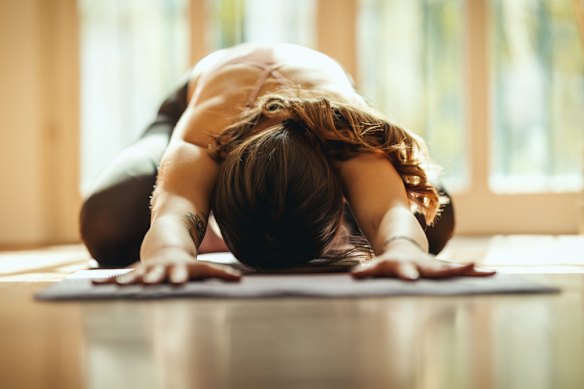There are many legitimate reasons for the advice given by parents, teachers, mentors and an array of online gurus that finding purpose is key to a good life. Research has shown that people who more strongly feel a sense of purpose tend to be physically and mentally healthier.
Loading
But the word has become so weighty that finding a purpose has, for many, become a source of angst.
The term “purpose anxiety” appears to have been coined in 2014 by a University of Pennsylvania graduate student, Larissa Rainey, and caught on. Author Elizabeth Gilbert, for example, best known for her memoir Eat, Pray, Love, has spoken frequently about an unhealthy obsession over a “purposeful life”. It is, she said in one interview, “the formula we’ve all been fed”.
Some of the old guideposts are gone
People have always searched for life’s meaning and purpose.
“Part of what it is to have a human consciousness is to think about our place in the universe,” said Jody Day, a psychotherapist and author of Living the Life Unexpected: How to Find Hope, Meaning and a Fulfilling Future without Children.
“But a lot of the places that we’ve naturally found meaning in our culture in, say, the last hundred years are falling away.”
Religion, for instance, often offered purpose and meaning to believers. But the number of people who identify as religious has dropped significantly over the years (although that appears to be levelling off recently, according to a 2025 survey by the Pew Research Centre).
Other people traditionally found purpose in ensuring that their children had a better life than they did. Many don’t have confidence that will be the case anymore, Day said.
As Steger said, “Now we’re stuck trying to do the harder thing, which is, one by one, figure out everything in the universe and how we fit.”
Take your time – and other advice for alleviating ‘purpose anxiety’
You might begin, Steger said, by realising that you don’t have to pin down a purpose immediately; searching for purpose in itself helps generate meaning in life.
It entails “understanding who you are and what you have to work with, understanding what you care about, what you’d like to see be better, either in yourself or in the world” and then figuring out if you can make an impact, he added.
“In our culture, we are so outcome-focused and process-adverse,” he said. “Probably my best advice is to take your time and be all right not always knowing.”
Loading
Look to hobbies, jobs and community involvement
For Jordan Grumet, author of The Purpose Code, there is big “P” Purpose and little “p” purpose, and too many people stress about finding the first and ignore the second.
“Big ‘P’ Purpose is goal-oriented – it’s usually big and audacious, and often unattainable,” he said. Social media, he said, “is full of people trying to voice that version of purpose on you so that they can make money.”
Better, he said, to focus on little “p” purpose and pursuits that some might simply call hobbies – gardening, singing, collecting baseball cards. Or it can be found in a job, or volunteering.
Loading
“What could I do that would light me up and fill me up and be a good use of my time?” Grumet said.
It’s not just for self-improvement, he said. When people do something they love, they attract people to them, which can help create communities.
Not all agree that hobbies and passions are the same as purpose. Reading books, Kashdan said, isn’t a purpose in itself, but can be a tool to discovering it.
“They’re just like fledgling seeds of, hey, something might be there that you might want to pursue with more depth and more gravity in your life.”

Exercise, hobbies, jobs and community can all help you find your purpose. Credit: iStock
When life throws you a curveball
Sometimes a traumatic event can change or create one’s purpose in life. For example, Day, the psychotherapist and author, assumed that her purpose would be to raise a family, but by her early 40s, she knew she would not be able to have children
“I felt so pointless as a human being because I wasn’t a mother,” she said, recalling the grief she felt.
But she ended up creating an online community for childless women called Gateway Women. In rural Ireland, where she lives, she is also helping build an in-person group that brings people without children together as they age.
“I feel that to be alive in this time, and to have a platform and to be awake is an incredible privilege, and that is my purpose,” she said.
AP
Start the day with a summary of the day’s most important and interesting stories, analysis and insights. Sign up for our Morning Edition newsletter.

